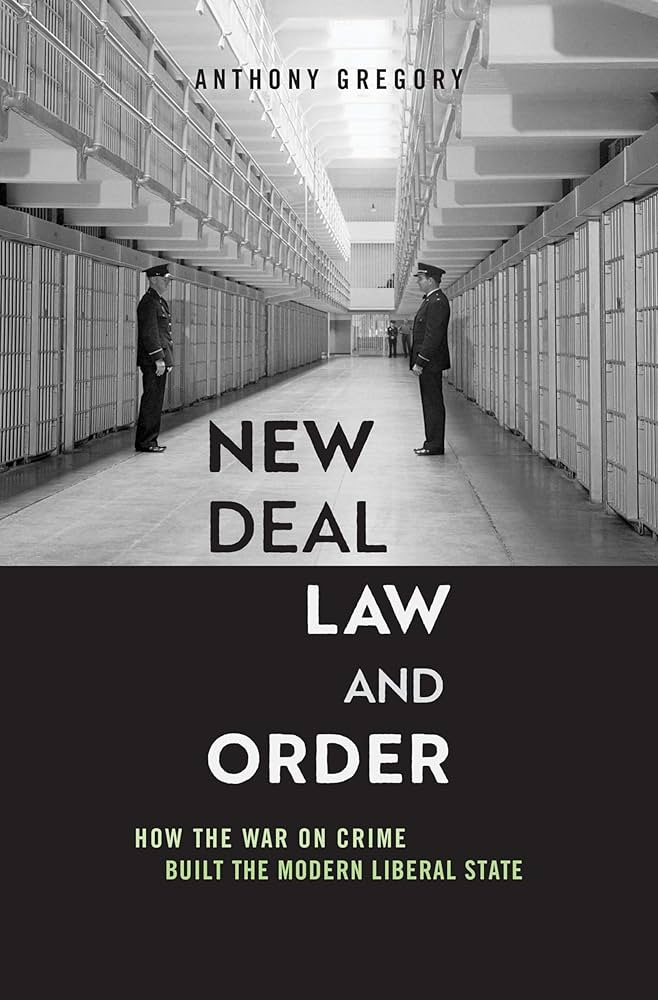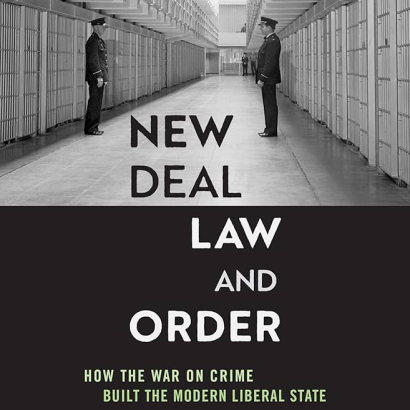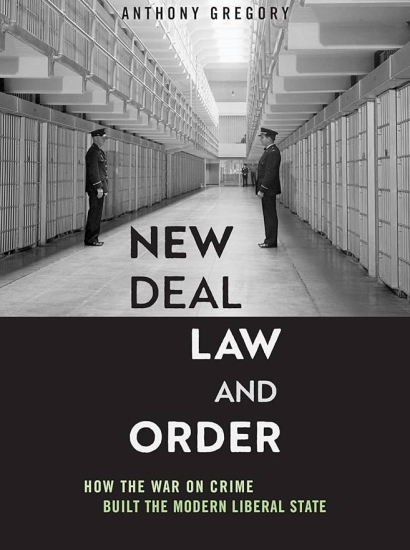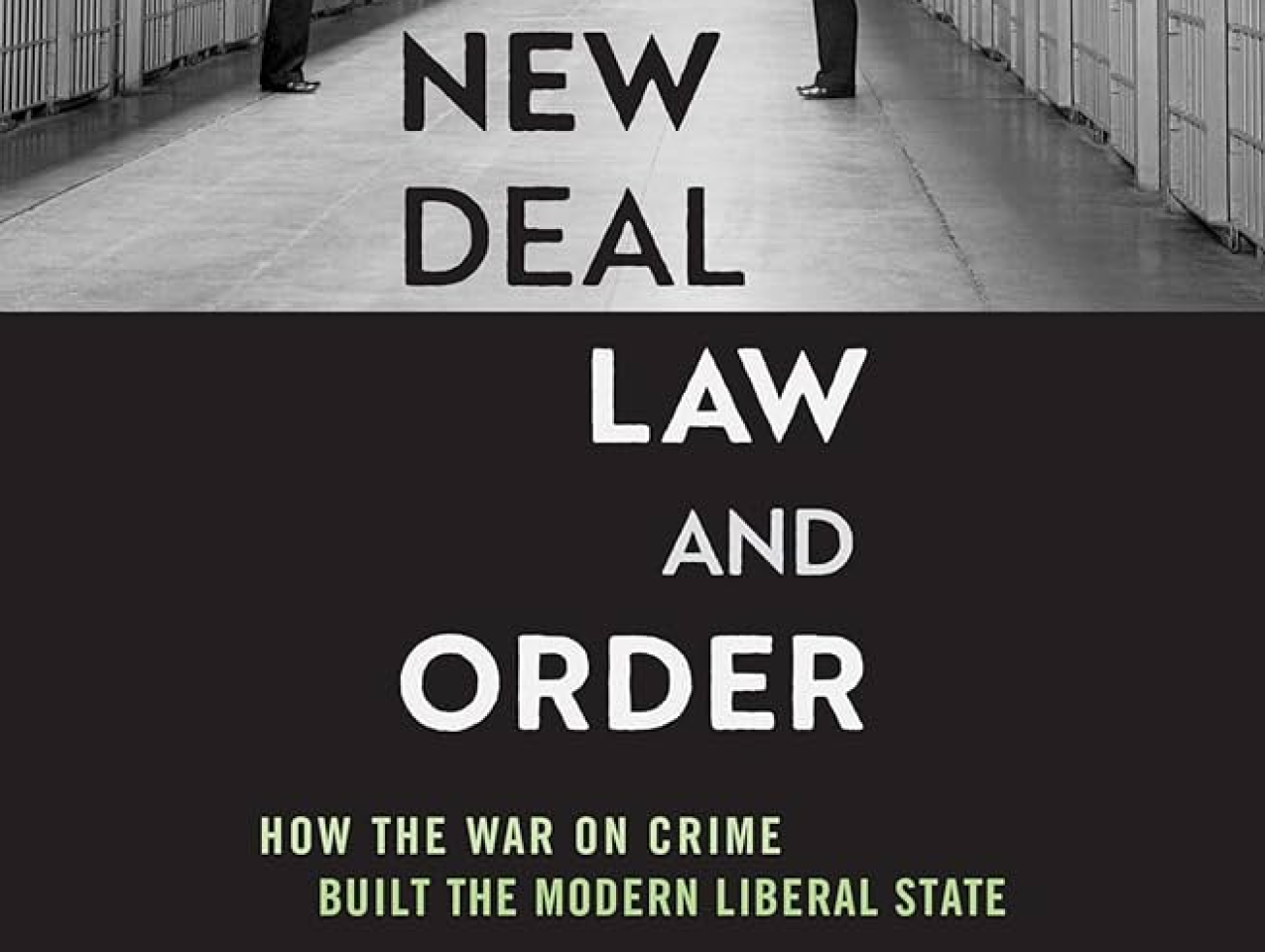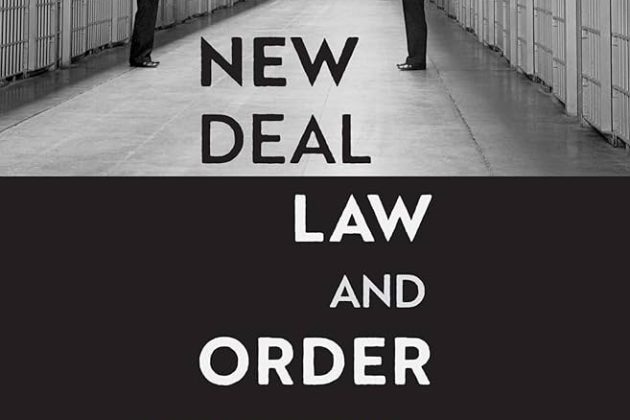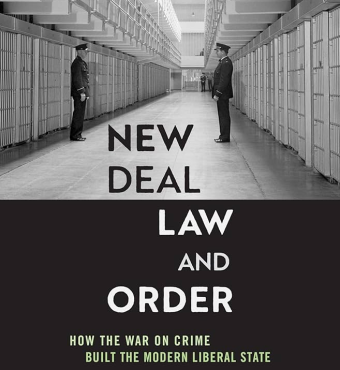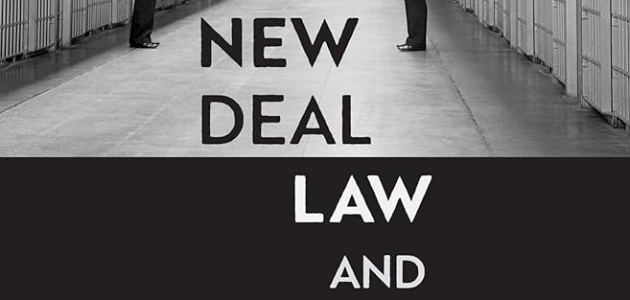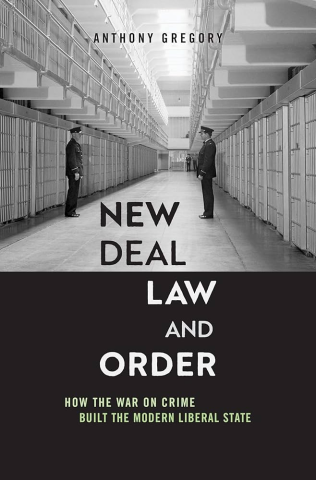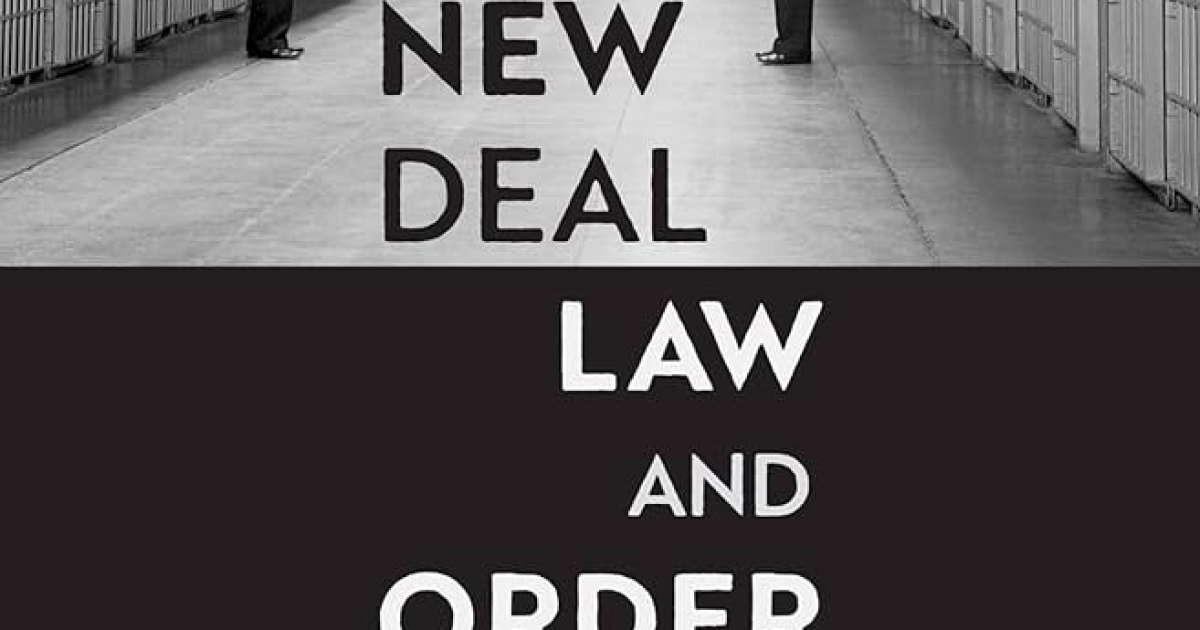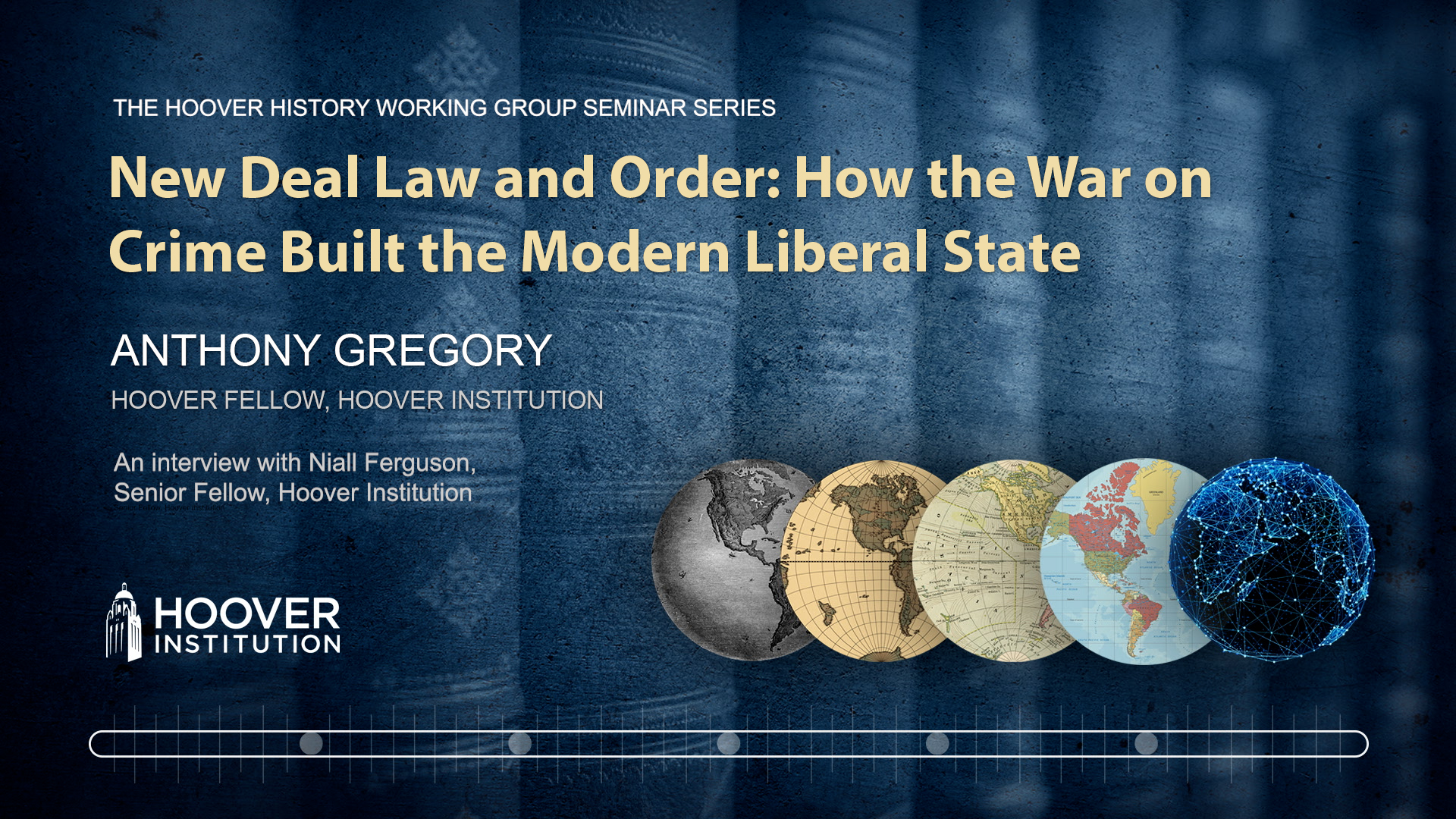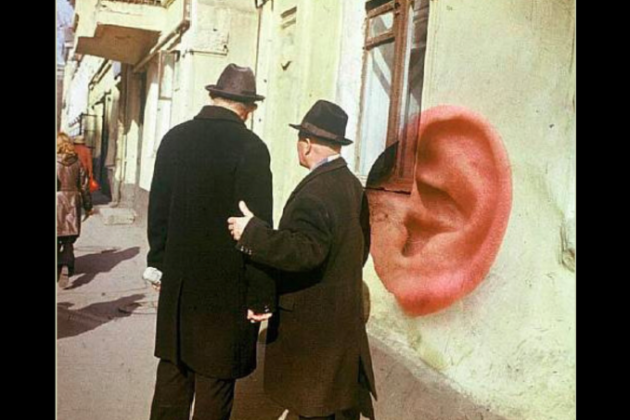On behalf of the Hoover Applied History Working Group, Dr. Niall Ferguson welcomes Anthony Gregory to vibrantly discuss his recent book, New Deal Law and Order: How the War on Crime Built the Modern Liberal State.
ABOUT THE TALK
This special book talk discovers how the 1930s redefined law and order, transforming liberalism and reshaping American government itself. We remember the New Deal as foundational to modern liberalism, but its crucial role in building the law-and-order state has gone neglected. This HAHWG seminar will look to Franklin Roosevelt’s war on crime for lessons on how political legitimacy relies on enforcement authority and consider the implications for today’s fraught politics of law and order.
WATCH THE VIDEO
>> Niall Ferguson: Hello, I'm Niall Ferguson. I'm the Milbank Family Senior Fellow here at the Hoover Institution. And it's a delight to welcome to the Hoover Applied History Working Group, one of our new Hoover Fellows, Anthony Gregory. He did all his university degrees at a rival institution, the University of California at Berkeley.
He's the author of three books. The first, the Power of Habeas Corpus in America. The second, American Surveillance, Intelligence, Privacy, and the Fourth Amendment. But he came to talk to us about his most recent book, New Deal Law and How the War on Crime Built the Modern Liberal State.
Anthony, you gave a brilliant presentation, I'd love to follow up with a few questions for our online audience. And my first one is a kind of simple one, why has American liberalism had such a problem with law and order as an issue?
>> Anthony Gregory: Well, Neil, that's a great question.
American liberalism is concerned with the protection of rights, with the elevation of the common good. But it also has an important commitment to restraining state power. Fighting lawlessness and protecting rights requires state power. And there's always a tension just right there because there's collateral damage, there's civil liberties implications.
Whenever the state attempts to enforce the law in the United States, it's especially a vexing problem because of the constitutional order. And American liberalism has a very cautious approach to usurping jurisdictional authority from the state governments, the local governments. And because of that, notoriously, throughout US history, the federal government, certainly before the Civil War, did not take it upon itself to protect the basic rights, say, of black Americans.
And after the Civil War, there was this open question of just how much the federal government should be involved in protecting people's rights, even against one another. And to this day, crimes such as murder are still mostly a state issue. So I'd say that the set of values in the most abstract and the particular constitutional formation of the US government are both the major obstacles and challenges.
>> Niall Ferguson: In that case, why does one of the most successful liberal presidents in all of American history, Franklin Roosevelt, decide to make law and order one of his key issues, which is really the argument of your book?
>> Anthony Gregory: Well, lawlessness was this huge problem in the United States through the Gilded Age, through the Progressive Era, through the prohibitionist 1920s, and every generation of national leaders attempted to deal with lawlessness.
But because of those constitutional restrictions on their power, because of American ideology, because of coalitional and institutional jealousies across American society, no federal leaders could really crack the code. He wasn't the first to make a promise that he would finally crack the code, but there was a kind of crisis that reached a boiling point with prohibition, especially.
Where prohibition had promised to finally tame lawlessness by reforming every police department, every city, every household, and instead it seemed to amplify lawlessness. So he inherited this war on crime from his predecessor, President Herbert Hoover, but he was able to put a more liberal gloss on it, both in finally promising to end alcohol prohibition, but promising to deal with the lingering promises or problems of lawlessness both from prohibition and from earlier era.
>> Niall Ferguson: Which makes it especially appropriate that we're having this conversation in the institution named after Herbert Hoover. But another Hoover was one of the beneficiaries of this turn in Roosevelt's policy, namely J Edgar Hoover. Is it fair to say that there are unintended consequences to Roosevelt's adoption of the war on crime, and that one of the beneficiaries, maybe more than one of the beneficiaries, is actually somebody who's anything but liberal?
>> Anthony Gregory: Well, that's a very good and provocative way of raising this point. J Edgar Hoover for many years had this reputation as a figure on the American right. For nearly half a century, he ran the Bureau of Investigation and especially because of its post war reputation. Going after communists, socialists, the New Left even, and often with kind of costs for civil liberties on that score, many on the left saw him as something of a villain.
But it was the New Deal state that modernized the Bureau of Investigation. That turned it from a controversial and weak agency with very few investigatory powers, very few arrest powers, where many of the agents weren't even armed and didn't even practice their firearms regularly. It was the New Dealers who encouraged J Edgar Hoover to modernize, to expand his power, to get involved in day-to-day questions of crime as well as political surveillance.
And J Edgar Hoover himself was initially reluctant, but he soon enough realized that he had something to gain from this settlement over federal power.
>> Niall Ferguson: As I think I really learned about the United States between the wars from watching movies, I found all this completely intuitive. One goes from gangsters to Alcatraz.
One has the feds with their firearms imposing law and order on a kind of crime infested city. But one of the things that really impressed me about the book was actually the statistics that you show on incarceration rates. This came as a real surprise to me that they actually peak in 1939 and don't regain the same peak until 1979.
That's a really amazing finding, and it makes me rethink the New Deal as something that had a distinctly authoritarian character to, is that the right way to interpret it?
>> Anthony Gregory: Well, it's up to you and others to decide whether a prison population reaching certain heights is a mark of authoritarianism.
Certainly, many people in the United States see the late 70s into the 80s and 90s as this period where they call it mass incarceration really expands.
>> Niall Ferguson: But if we can use those terms very rarely associate them with FDR.
>> Anthony Gregory: Well, that's true. And to be clear, this wasn't all FDR, there was some inertia in place at the state and federal level, and we can't run this experiment twice.
But we do know that the New Deal state, including some iconic parts of the New Deal welfare state, like the Works Progress Administration, actively helped build and renovate jails and prisons. We know that the federal criminal code ballooned quite a bit in the 1930s and that this eventually helped propel the prison population to new heights after World War II.
And it is the case that throughout the 30s, the overall trajectory was that the prison population for state and federal detentions reaches this peak at the end of the decade. And by the way, at the same time, rehabilitation is also rising, parole, probation. So what makes the New Dealers so special is, they don't see rehabilitation and incarceration as this zero-sum contest.
They want to use all the levers of state power, the welfare state, the security state, the police state, as one might call it, to combat crime in this kind of holistic, multi-pronged offensive against lawlessness.
>> Niall Ferguson: It had a very special significance in the American South. And as you say, the context here is the context of a federal system where for most of the history of the republic up until the 30s, it's the states that decide on how the criminal justice system works.
Tell us what your book shows about the way the New Deal's criminal justice reforms impacted the South.
>> Anthony Gregory: Well, as with many other things that the federal government was doing, most white Southerners were quite on board with the New Deal. In fact, white Southerners were Roosevelt's most loyal voting bloc, and they had been loyal Democrats for many years, going back to the 19th century.
The real puzzle is how does the New Deal coalition win over black Americans who in the early 30s are breaking largely for the party of Lincoln for some understandable historical reasons, then by the late 30s, they're breaking for the party of Roosevelt? And one of the key factors, I would argue, has to do with law and order.
In the early 30s, there's the surge in lynching, racial terror. And it's hard for Americans today to really imagine just how disruptive and alienating and horrifying this was for Black-America. It was racial terrorism and it was on the rise. And from the perspective of most black Americans, certainly groups like the NAACP, this was the problem of lawlessness that the federal government conspicuously failed to address.
And throughout the New Deal, Roosevelt didn't really directly address it, at least in the 30s, but the Justice Department under Attorney General Homer Cummings, they would give these flashes of hope to black Americans. They prosecuted a case in 1936 in Arkansas. They prosecuted a white man for a slavery.
For violating the slavery statute by tricking local officials into letting him force black men to work his land. And eventually, as we get into the 40s, the FBI does start to investigate lynchings and it investigates police brutality. And so, because the situation for black Americans was so dire, it actually didn't take that much for the New Dealers to give them a sense of hope when it came to law and order.
A more egalitarian future of law and order, even as they continued to build up the carceral systems that by default were still engines of what we might call white supremacy or racism in the south.
>> Niall Ferguson: Fast forward 90 years to the 2000s, and it feels like as we're trying to apply history here, one lesson for Democrats might be defund the police as a bad slogan and getting on the wrong side of the law and order issue is a way to lose elections.
How does your understanding of Roosevelt's relationship to the law and order issue inform your view of the politics of the 2024 election?
>> Anthony Gregory: That's a very big question. It's true that the defund the police rhetoric in 2020 was not very good politics. Now, the Democrats did win the 2020 election, but notably they won it with Joe Biden, who was famous for his tough on crime stance in the 1980s, 90s, even pushing Reagan to be harder on drugs than he wanted to be.
And Kamala Harris, who was a prosecutor and despite some of her rhetoric in 2019, 2020, not a particularly progressive or left wing prosecutor. And what we see by 2024 is the Democrats try to embrace this ecumenical approach to combating lawlessness. They accuse the other side of lawlessness. And similarly, the Republicans accuse the Democrats both of tolerating lawlessness when it comes to riots or street crime, and yet weaponizing the Justice Department against political enemies.
I would say that in reflecting on the 2024 election and moving forward, the real puzzle for both parties is going to be how do we advance a law and order agenda that seems fair? That doesn't seem partisan, and that seems to address lawlessness among all classes, among all races, and in this somewhat egalitarian, or at least aspirationally equal way?
And that was what Roosevelt was able to do. And I've yet to decide whether either party is actually well positioned to do that. I think they both have a lot of challenges in trying to do that. So we'll see.
>> Niall Ferguson: It's an absolutely fascinating book, Anthony, and I highly recommend it to anybody who wants to get a new understanding of America in the 1930s, New Deal, Law and Order, How the War on Crime Built the Modern Liberal state.
We're delighted to have you here at the Hoover Institution and look forward eagerly to your next book. That's all for now from the Hoover Applied History Working Group. We'll be posting regular videos like this every time we have a seminar at Hoover.
ABOUT THE SPEAKER
Anthony Gregory is a Hoover Fellow at the Hoover Institution on War, Revolution and Peace, at Stanford University. He is a legal and policy historian of the American state. He was previously an assistant professor in residence at Rhode Island School of Design’s Department of History, Philosophy, and Social Sciences. He earned his PhD in History at the University of California Berkeley, where he trained as an Americanist studying politics and law, and spent two years as a postdoctoral research associate at Brown University’s Political Theory Project before beginning at RISD. Gregory is the author of multiple academic publications on national security, constitutionalism, and legal theory and is currently working on modern American liberalism and criminal justice, particularly on how the New Deal war on crime legitimated and transformed U.S. governance.






